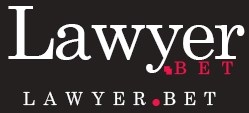
Understanding Formal Probate Proceedings in Florida
Formal probate proceedings in Florida are characterized by a structured approach and increased court oversight compared to informal proceedings. Here are the key elements that define formal probate in the state:
1. Appointment of Personal Representative
One of the fundamental aspects of formal probate is the appointment of a personal representative by the court to manage the estate. This individual is typically selected based on the deceased’s will or, in the absence of a will, according to statutory guidelines. The personal representative is tasked with overseeing the administration and distribution of the estate assets under the supervision of the court.
2. Notification to Creditors and Interested Parties
A crucial requirement in formal probate is the issuance of formal notice to creditors and interested parties. This notice is published in a local newspaper to alert potential claimants about the ongoing probate process. Creditors are given a specific period to submit claims against the estate, ensuring that the deceased’s debts are appropriately addressed.
3. Court Hearings and Oversight
Formal probate proceedings involve court hearings and supervision at various stages to review and approve significant actions taken by the personal representative. This includes transactions like real estate sales that require court approval. The level of scrutiny provided by the court offers an added layer of protection for the beneficiaries of the estate.
4. Resolution of Disputes
In cases where disputes arise during formal probate, the court plays a central role in resolving them. These disputes can range from challenges to the validity of the will to disagreements among heirs or actions taken by the personal representative. Court intervention is often necessary to reach a resolution in such contentious situations.
Insight into Informal Probate Proceedings in Florida
Informal probate proceedings in Florida are known for their streamlined and less formal approach compared to formal proceedings. Here’s a breakdown of what informal probate entails in the state:
1. Emphasis on Simplicity and Efficiency
Informal probate is typically chosen for straightforward and uncontested estates, offering a simplified and efficient process. It is well-suited for situations where there are minimal complications or disputes, allowing for a smoother administration of the estate.
2. Limited Court Hearings by Default
Unlike formal probate, informal probate generally does not involve court hearings unless a dispute arises. Documents and actions are reviewed and approved by the court without the need for formal hearings, speeding up the probate process significantly.
3. Flexibility in Document Handling
Informal probate provides greater flexibility in document filing, allowing personal representatives to carry out necessary tasks like asset distribution or property sales without court intervention. This flexibility can lead to a more expedited resolution of the estate’s affairs.
4. Addressing Potential Disputes
While informal probate is generally quicker and more straightforward, disputes can still arise, necessitating a transition to a more formal process with court involvement to resolve conflicts effectively.
Making the Choice Between Formal and Informal Probate
Deciding between formal and informal probate proceedings hinges on the specific circumstances of the estate. Here are some factors to consider when making this decision:
1. Estate Complexity
For straightforward estates with clear beneficiaries and minimal assets, informal probate may be the preferred option. However, complex estates with significant assets or potential disputes may require formal probate to ensure a legally sound process.
2. Time Considerations
Informal probate is generally faster due to fewer court hearings and administrative requirements. If time is a critical factor, opting for informal probate could expedite the process.
3. Managing Disputes
In cases where disputes among beneficiaries or challenges to the will are anticipated, formal probate with court oversight can provide a structured framework for resolving conflicts effectively.
Seeking Guidance from a Skilled Probate Attorney
Whether you are navigating formal or informal probate proceedings, seeking advice from an experienced probate attorney is essential. A knowledgeable attorney can evaluate your situation, offer guidance on the most suitable approach, and assist you in complying with Florida’s probate laws and regulations.
If you require assistance with probate matters in Florida, reach out to Morgan Legal Group in Miami. Our team of proficient probate attorneys is dedicated to helping you make informed decisions and ensuring the efficient administration of your loved one’s estate.
The post Exploring the Contrasts Between Formal and Informal Probate Proceedings appeared first on morganlegalfl.com.
Understanding the Differences Between Formal and Informal Probate Proceedings
Probate is the legal process through which a deceased person’s assets are distributed and their debts are paid off. When it comes to probate proceedings, there are two main types: formal and informal. Both processes serve the same purpose, but they differ in their complexity, time frame, and overall cost. Understanding these key differences can help you navigate the probate process more efficiently and effectively.
Formal Probate Proceeding
- Requires court oversight and approval
- Generally more complex and time-consuming
- May involve multiple court hearings
- Generally required for larger estates
- May involve more extensive documentation and paperwork
- May require the appointment of a personal representative by the court
Informal Probate Proceeding
- Does not require court oversight and approval
- Generally less complex and time-consuming
- Often completed without court hearings
- Generally suitable for smaller estates
- May involve less documentation and paperwork
- May not require the appointment of a personal representative by the court
Benefits of Formal and Informal Probate Proceedings
While formal probate proceedings offer more oversight and protection for all parties involved, informal probate proceedings are often faster and more cost-effective. Choosing the right option depends on the specific circumstances of the estate and the preferences of the involved parties.
Practical Tips for Navigating Probate Proceedings
Whether you’re dealing with a formal or informal probate proceeding, there are several tips that can help streamline the process:
- Keep detailed records of all assets and debts
- Communicate regularly with all interested parties
- Consult with a probate attorney for guidance and support
- Follow all legal requirements and deadlines diligently
- Stay organized and keep track of all paperwork
Case Studies
Consider the following case studies to better understand the differences between formal and informal probate proceedings:
| Property Value | Time Frame | Cost |
|---|---|---|
| $1,000,000 | 12 months | $10,000 |
| Property Value | Time Frame | Cost |
|---|---|---|
| $200,000 | 6 months | $5,000 |
Firsthand Experience
Dealing with probate proceedings can be a challenging and emotional process. Seeking professional advice and guidance can make a significant difference in how smoothly the proceedings unfold. Remember that each case is unique, and the best approach may vary based on individual circumstances.
By understanding the differences between formal and informal probate proceedings, you can make informed decisions that benefit all parties involved. Whether you choose a formal or informal approach, proper planning and communication are key to a successful probate process.









